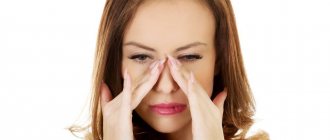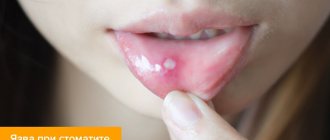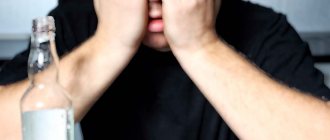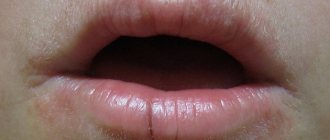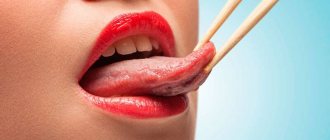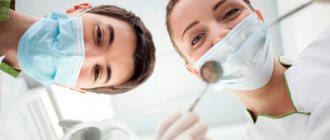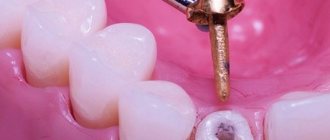Swelling of the lips can develop not only for physiological reasons such as an insect bite, dental treatment under anesthesia, but also pathological - erysipelas, herpes, allergic reaction, dental diseases. At home, you can help with an ice cube, parsley decoction, baking soda slurry, and antihistamine tablets.
But if the swelling spreads quickly, the person’s condition worsens, or there is no positive dynamics when using different methods for 2 days, then you should immediately consult a doctor.
Treatment will be prescribed taking into account the reason for the swelling of the lips - antibacterial, anti-inflammatory drugs, glucocorticosteroids, antihistamines, antivirals.
Harmless problems that cause lip swelling
Swelling of the lips, as a rule, occurs spontaneously, and often such a change in appearance can be explained by physiological, harmless reasons:
- a bite of an insect;
- too hot kisses;
- pimple formation;
- carrying out a cosmetic procedure the day before;
- dental treatment under anesthesia;
- drinking too much liquid before bed.
Such swelling is short-lived and disappears without medical intervention. You can speed up the restoration of the appearance and shape of your lips using folk remedies.
Because of kisses
Swelling of the lips often occurs due to kissing, because during them:
- there is strong pressure on the skin - in the lip area it is thin and sensitive;
- capillaries receive microdamage - small blood vessels in this area of the face are located as close as possible to the upper layer of the dermis;
- nerve endings are subject to severe irritation;
- During the process, the partner bit his lips.
The swelling may also spread to the area around the mouth if the kissing was prolonged and too intense.
From the bite
Swelling may appear at the site of an insect bite when a person bites his own lip. In this case, the swelling will be accompanied by pinpoint hemorrhages directly at the site of the bite/bite, and mild pain may be bothersome.
If the bite was caused by a wasp or a bee, then at the site of damage you can find the sting left by the insect. It should be removed quickly to prevent an inflammatory process from developing.
Because of a pimple
A pimple may form not on the lip, but next to it. Its growth will certainly lead to swelling of the surrounding soft tissues, so the lips will become enlarged, may acquire a red tint and be hot to the touch.
Swelling due to acne is characterized by deformation of the lips, swelling is observed only on one side.
Swollen after cosmetic procedures
If cosmetic procedures were performed on the face the day before, then the reason for the swollen lip may be:
- incorrect manipulation technique;
- violation of antiseptic rules during the procedure;
- individual reaction to external influences;
- carrying out the procedure in unsanitary conditions.
After tooth treatment
Dental treatment carried out the day before can also cause lip swelling if the dentist used anesthesia during his work. During the injection, a small vessel may be damaged, the needle could enter a nerve ending, and soft tissues also do not always respond equally to painkillers. In the latter case, the swelling can be associated with the body's individual reaction to the administered drug.
The morning after sleep
If swelling of the lip is noted in the morning, this may be due to:
- drinking a large amount of liquid the night before - the swelling will spread to the face, there is also swelling of the fingers;
- uncomfortable sleeping position - if the lips were subjected to pressure while resting, then swelling can be caused by a temporary disruption of blood flow.
The listed causes of lip swelling do not pose a threat to human health and life, and do not require the use of medications or a medical examination to identify hidden internal pathologies.
2.What are the types of urticaria and Quincke's edema?
There are several different types of urticaria and angioedema:
- Acute urticaria and acute angioedema
. This is hives or swelling that lasts less than six weeks. The most common causes of this reaction in the body are food, drugs, latex or infections. Insect bites or some kind of internal disease are another cause of acute urticaria. When it comes to foods, the most common causes of hives are nuts, chocolate, fish, tomatoes, eggs, fresh berries, soy, wheat and milk. Especially if they are all consumed in their raw form. Medicines that may cause hives or angioedema include aspirin and other nonsteroidal anti-inflammatory drugs (such as ibuprofen), high blood pressure medications, or pain relievers (codeine). - Chronic urticaria or Quincke's edema
. In this case, the hives or swelling last for more than six weeks. Usually the causes of this type of urticaria are more difficult to determine than in the case of the acute form of the disease. In fact, the cause of chronic urticaria may be the same, but perhaps it is all due to an autoimmune disease, chronic infections, hormonal disorders or malignant neoplasms. - Physical urticaria
. This is a rash caused by direct physical impact on the skin. For example, from cold, heat, sunlight, vibration, pressure, sweating or exercise. In this case, hives usually appear in the area where the skin was directly exposed and rarely occur elsewhere. In most cases, physical hives go away within an hour of stopping exposure. Cold allergy is one of the most common forms of physical urticaria. - Dermatographism
is hives that appear when the skin is rubbed or scratched too hard. Such urticaria can begin simultaneously with other forms of this disease. - Hereditary angioedema
. This is a painful swelling of the tissue. The disease is inherited.
Visit our Allergology page
Why did swelling of the upper lip occur, reasons if the lower lip
The cause of swelling of the upper and lower lips is often mechanical damage due to an impact or bruise. In this case, the swelling will be accompanied by other accompanying symptoms:
- pain directly at the site of injury;
- hematoma – can be extensive with severe trauma or localized;
- numbness, loss of sensitivity;
- discomfort while eating, swallowing saliva and talking.
If the swelling is accompanied by an increase in body temperature, the pain syndrome becomes more intense, and the ability to make simple movements of the jaws is lost, then this may indicate the beginning of an infectious process in the damaged soft tissues.
The lip swells for no apparent reason at first glance
Swelling of the lips never forms without a reason, you just need to find it - analyze the actions the day before, rule out colds, dental diseases, and allergies. If the listed provoking factors are excluded, then it is worth seeking qualified medical help to rule out herpes, inflammatory processes and rare diseases that occur without severe symptoms.
For colds
Herpes
When you have a cold, the immune system weakens, so chronic pathologies immediately enter the acute stage. These include herpes, which most often appears on areas of the face and body with loose connective tissue, just like that present in the lips. The swelling is accompanied by itching, a burning sensation, and on the 2nd day from the onset of symptoms, rashes form in the form of small blisters with liquid contents.
Swelling can be increased by elevated body temperature and constant drying of the skin of the lips due to thirst.
Stomatitis, complicated caries
Stomatitis
Any dental disease can also cause swelling of the lips:
- stomatitis – ulcers form on the oral mucosa;
- complicated caries – pulpitis, periodontitis, accompanied by severe toothache;
- inflammation of the gum tissue - they become red, aching pain bothers you.
Allergy
If the allergic reaction develops rapidly and a rapidly growing swelling of the lips is noted, then we are talking about Quincke's edema.
This condition is life-threatening, so medical attention must be provided immediately. Allergic swelling can be provoked by:
- insect bites;
- eating hyperallergenic foods;
- some medications;
- decorative and care cosmetics.
The process is accompanied by itching and numbness. In especially severe cases, suffocation and hoarseness occur.
Erysipelas
The cause of erysipelas is beta-hemolytic streptococcus, so this disease will be characterized by both local and general symptoms. The first include:
- skin redness;
- swelling of the lips, quickly spreading to the entire face;
- severe pain syndrome;
- clear definition between inflamed and healthy areas of the skin.
Swelling may be present in other parts of the body, with the lower extremities most often affected. Before the characteristic swelling appears, general symptoms are disturbing: headache, severe weakness, high body temperature and chills.
Rare diseases
Swelling of the lips can also be a symptom of rare diseases:
- Meige's trophedema is a hereditary disease that progresses at a young age, manifested by periodic swelling of the lips (disappears after 2-3 hours), numbness of swollen areas of the skin, excessive fatigue, and weakness.
- Melkersson-Rosenthal syndrome is characterized by a triad of symptoms: swelling of the upper lip, neuritis of the facial nerve and “folded” tongue.
These pathologies are diagnosed in isolated cases, but if other probable causes and provoking factors are excluded, then it is worth undergoing an in-depth examination.
Why does swelling occur?
The causes of lip swelling can be very different:
- Injuries such as bruises, cuts or scrapes. Even minor mechanical impacts can cause damage and inflammation of soft tissues and cause swelling. Injury is possible in different situations: when biting the lip, careless use of dental instruments or cutlery, careless use of cosmetics (for example, a sharpened pencil).
- Reaction to thermal stress, such as excessively elevated temperatures or contact with hot objects and foods.
- Swelling can also occur due to cold, especially its prolonged and pronounced exposure: after contact with icy surfaces or prolonged exposure to low temperatures.
- Eating excessively spicy foods or seasonings. The substances they contain have a local irritating effect and can cause tissue swelling. Such components can also be included in pineapples, sour berries and fruits, mint.
- One of the most common causes of lip swelling is allergies, which manifest themselves in the form of swelling, itching, hyperemia, redness, a feeling of fullness and discomfort. An undesirable reaction develops as a result of contact with allergens, which may be contained in food, cosmetics, some medications, and even toothpaste.
- Swelling can develop after an insect bite, such as a mosquito, midge or wasp. Many insects inject substances under the skin that cause unwanted reactions in the body, which often manifest themselves in the form of swelling, itching and redness. So if you have been on a walk in the forest or just on the street in the warm season, you may well notice unpleasant symptoms, and bites sometimes go unnoticed.
- Cheilitis is a disease accompanied by damage to the lip area. With it, cracking and peeling, cracks, a red border in the closure zone, and sometimes blanching are observed. Cheilitis can develop for various reasons, such as infections, allergic reactions, and dermatological diseases.
- Some infections, for example, fungal infections, herpes, stomatitis, lichen and others. They can affect not only the lips, but also other parts of the face and body. In some cases, along with local manifestations, general ones also occur: fever, increased body temperature, symptoms of intoxication.
- Recent medical or cosmetic procedures: contouring, tattooing, Botox injections, massage, etc. Swelling may also be a reaction to local anesthesia.
- Not the most common cause is malignant neoplasms.
- Swelling may appear after passionate kissing. But in this case it should pass quickly.
How to remove swelling from lips
Cold compress
If swelling of the lips occurs suddenly, it is not possible to see a doctor immediately, then you can relieve it with folk remedies:
- Aloe juice. You need to take the bottom leaf of the plant, remove the skin from it, and “extract” the juice from the pulp. Soak a cotton pad in this juice and apply it to the swollen area for 30 minutes. The procedure should be repeated frequently, every 20-30 minutes, until the swelling becomes less pronounced.
- Baking soda. It is diluted in water at room temperature in equal proportions - the “output” should be a paste without lumps. It is applied in a thick layer to the swelling and left for 10-15 minutes, then washed off with cool water. The procedure is repeated every hour, the number is unlimited.
- Parsley decoction. Take 1 tablespoon of parsley seeds for 1 glass of water and boil the mixture in a water bath for 5 minutes, then cool and filter. A cotton pad is moistened in the finished product and applied to the lips as often as the lotion dries quickly.
- Plantain. Fresh leaves of the plant are used, they are picked and crushed into pulp. The finished mass is applied to the swelling for 20 minutes, then washed off with cool water. The procedure can be repeated once every 2 hours.
The simplest and most effective action for sudden swelling of the lips is to apply ice, a towel soaked in cold water, or a frozen product to the problem area. The cold compress should be on the skin for no more than 5 minutes in a row, then you should take a break in the procedure for 10 minutes and you can repeat the manipulation.
You can also use diuretic herbs:
- chamomile and bearberry;
- rose hips and nettles;
- milk thistle and black currant leaves;
- tansy and flax seeds.
Decoctions are prepared from them at the rate of 1 tablespoon per 250 ml of water, boiled in a water bath for 5 minutes, cooled to room temperature and filtered. Take 50-70 ml 3-5 times a day. It is strictly forbidden to use herbs with diuretic properties for:
- nephrosis;
- diabetes mellitus;
- urolithiasis;
- gout;
- renal failure;
- diagnosed zinc and calcium deficiency.
What will help quickly eliminate the tumor with ointment?
Some ointments are also effective against lip swelling:
- Fluorocort;
- Flucinar;
- Prednisolone;
- Sinalar.
They have a complex effect on the pathological focus - they stop the inflammatory process, have an antihistamine effect, and eliminate itching. Apply a thin layer, the procedure is repeated 2-3 times a day. Doctors allow the use of these medications only if there are no contraindications to them.
How to eliminate swelling?
What to do if severe swelling of the lips occurs? First of all, you need to find out the causes of such a symptom and try to influence them directly.
In case of swelling, the following measures can be taken:
- If the symptom is caused by an allergy, then an antihistamine should be used. For minor manifestations, a local drug such as Fenistil will be sufficient. If the reaction is strong, then it is better to take the remedy internally. Modern and effective drugs of the latest generations will help: Zodak, Erius, Zyrtec. You also need to avoid any contact with potential allergens.
- In case of mechanical stress, the damaged area should be treated with an antiseptic such as Miramistin, hydrogen peroxide or Chlorhexidine. For bruises, cold will help, which will eliminate swelling and pain. Apply something cold, but not for long, otherwise the situation may worsen.
- For burns and inflammation, local remedies that have regenerating, moisturizing and anti-inflammatory effects help. These include “Solcoseryl” and “Bepanten”.
- For infections, appropriate medications are used. For example, for herpes, drugs such as Zovirax and Acyclovir are recommended. For bacterial infections, it is advisable to use antibiotics, and for fungal diseases, antifungal drugs.
- In some cases, folk remedies can also be used to eliminate edema. So, mint essential oil will eliminate itching and discomfort, and tea tree oil will relieve inflammation and speed up the healing process. But such products are aggressive and can irritate the skin, so it is better to mix them with a base oil, for example, peach or olive. For injuries, you can apply a cut aloe leaf to your lip. Decoctions of herbs that have an anti-inflammatory effect are also effective. These include string, sage, coltsfoot, chamomile, and calendula. Decoctions are used for rubbing, lotions and compresses.
If swelling of the lips occurs, try to find out its causes and immediately begin to act to eliminate the unpleasant symptom.
How to quickly remove a hickey from your lip.
on the neck, on the lip, on the face, on the cheek, on the body.
It's all so unimportant at such moments. And yet tomorrow comes, and with it, traces of a stormy night appear - hickeys...
The French sex therapist J. Lele qualified all kisses, and one of them is called a hickey; a kiss is similar in technique to an intense pinch, which can result in a bruise. Hickeys attract the curious glances of others, becoming the subject of conversation and gossip.
How to hide from strangers traces that could reveal and tell about your passion? How to quickly get rid of hickeys? First things first.
Is it possible to remove papilloma yourself?
What to do when a hickey has already appeared? The most important rule for its effective removal is to start acting as early as possible. The fresher the bruise, the faster it will disappear. First of all, cold is applied to the damaged area: an ice cube or a spoon chilled in the freezer.
Lip swelling: causes and treatment
Drug treatment for lip swelling depends on what causes this condition:
- Quincke's edema. Home methods will not help; you should immediately seek qualified medical help. Doctors use antihistamines (Suprastin, Zyrtec); in especially severe cases, a decision is made to intravenously administer glucocorticosteroids such as Prednisolone, Dexamethasone. In case of airway obstruction, the ambulance team administers adrenaline.
- Traumatic injury. Therapy will depend on the degree of injury; doctors prefer Solcoseryl gel, Miramistin ointment, Chlorhexidine solution for treating the wound (if there is an open one). If the wound is deep and there is no positive dynamics for 2 days, sutures may be necessary.
- Herpes. Antiviral drugs Gerpevir, Acyclovir, Zovirax are prescribed. Ointments are applied 5-6 times a day in a thin layer, the course of therapy is at least 5 days, even if the swelling has disappeared.
- Erysipelas. Antibacterial agents are used - Amoxicillin, Erythromycin. Additionally, bandages are applied with a solution of furatsilin or chlorophyllipt, and methyluracil ointment is used to speed up healing.
- Inflammation, purulent processes in the oral cavity. Treatment at home is unacceptable; the dentist will sanitize the oral cavity and prescribe antibacterial agents, if necessary.
Prevention measures
You can prevent the formation of lip edema by following the preventive recommendations of specialists:
- strengthen the immune system - adhere to proper nutrition, avoid stress and emotional outbursts, exercise regularly and moderately;
- make a choice of a cosmetologist and dentist, taking into account not only the prices for their services, but also the reputation of the clinic, the availability of certificates, and customer reviews;
- if there is a wound on the lip, then do not touch it with dirty hands;
- If you have allergies, choose decorative cosmetics and skin care products with special care;
- avoid hypothermia or overheating;
- drink enough water every day - at least one and a half liters per day;
- include in your diet foods rich in vitamins B6, B12, and C;
- after cosmetic manipulations, follow all instructions and recommendations of the doctor who performed the procedure;
- undergo medical examination at least once every 12 months to exclude hidden internal pathologies.
Swelling of the lips may indicate the development of serious pathologies, so if it begins suddenly and spreads rapidly or does not disappear even after therapy, you should seek qualified medical help. Complete treatment of the disease that caused lip swelling will give the desired result.

